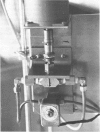Abstract
Automatic monitoring of the concentration of test gases and other environmental variables in small animal inhalation exposure chambers, coupled with computing capability and feedback control of the concentration of test gas, allows almost fully automatic operation of the chambers with a minimal amount of human intervention. Time-varying exposure profiles may be generated repeatedly with great accuracy, thus allowing a more realistic simulation of real-life exposures than is approached by operating chambers manually at ostensibly constant concentrations of test gases. Carefully conducted, pre-experimental calibration procedures are performed, and daily calibration checks allow statistical control of daily chamber operation and longer term quality control. At the conclusion of each experiment the investigator is supplied with records that document chamber conditions that have been monitored throughout the entire experiment, with estimates of the accuracy that was achieved in creating the specified exposure profile. A purpose of this report is to help to bridge the gap between the practicing inhalation toxicologist and the engineer in order to encourage their cooperation and mutual understanding of the technical problems involved in developing computer-assistance packages for inhalation facilities.
Full text
PDF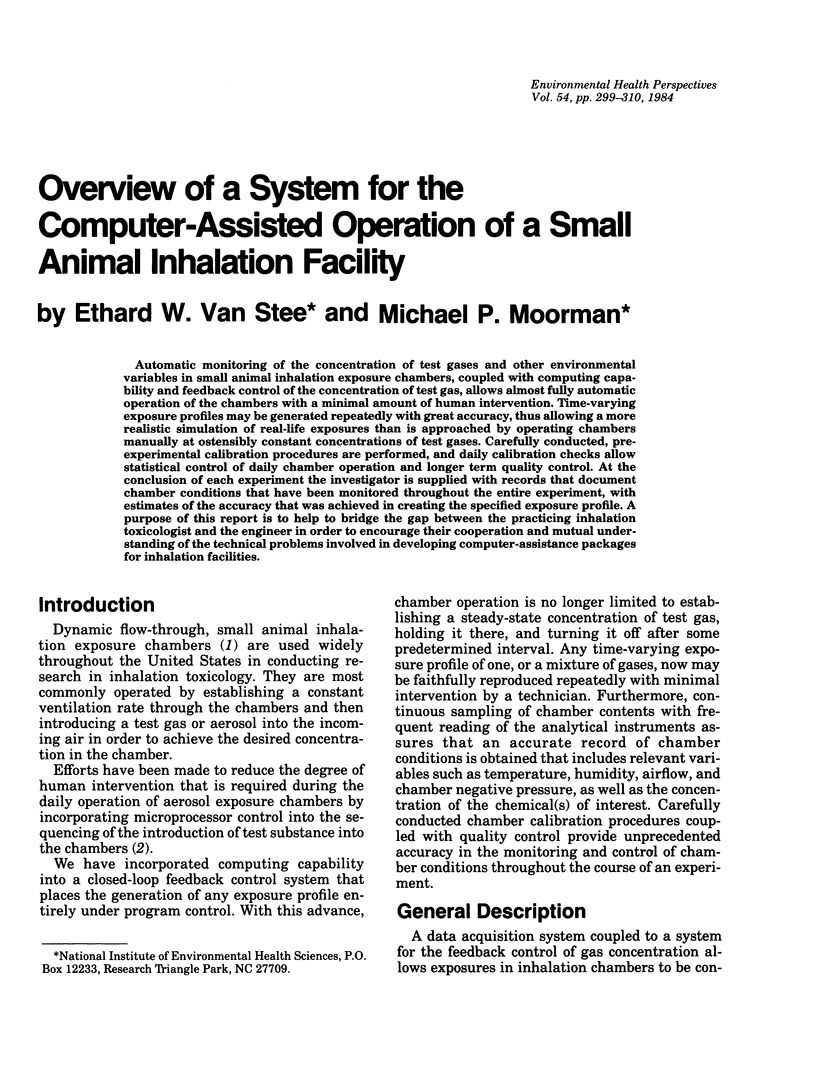
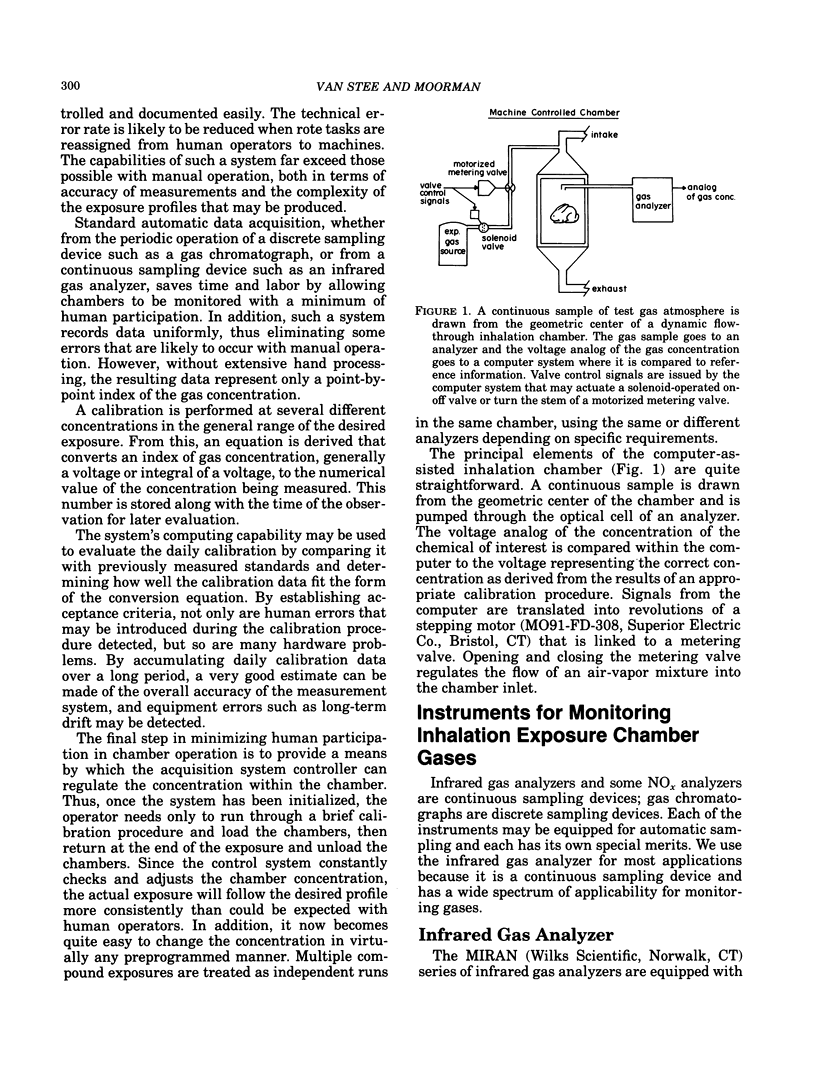
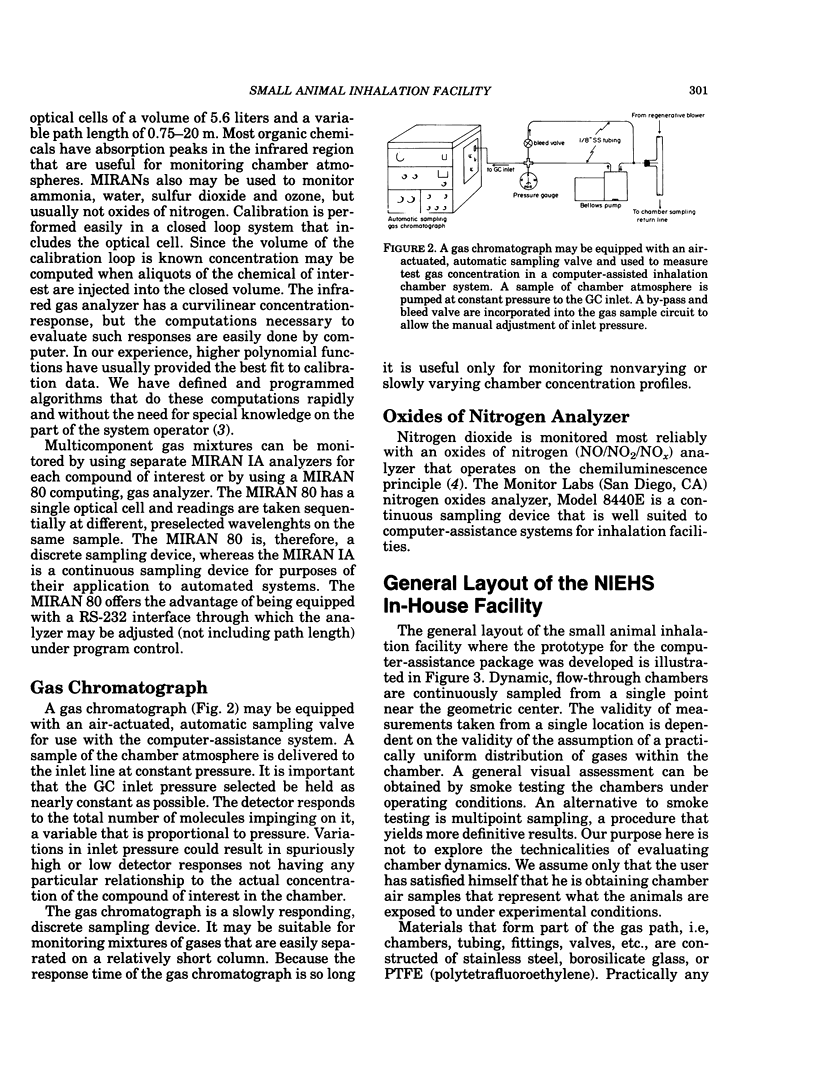
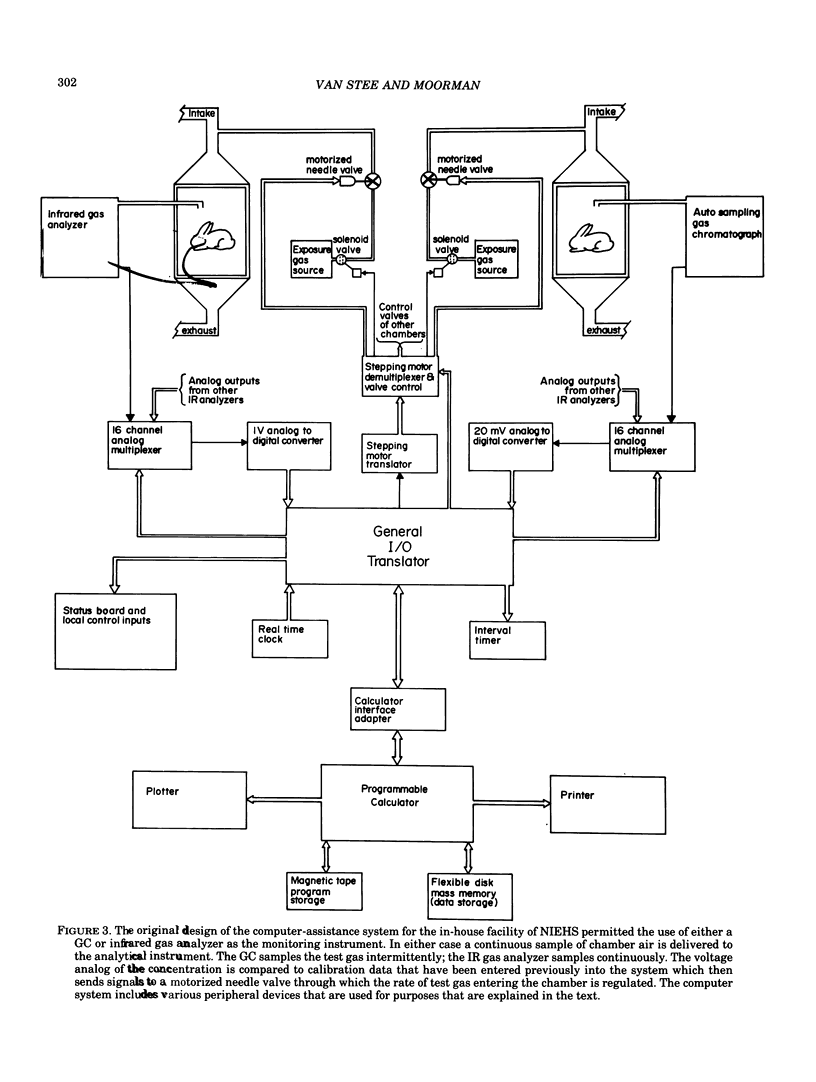
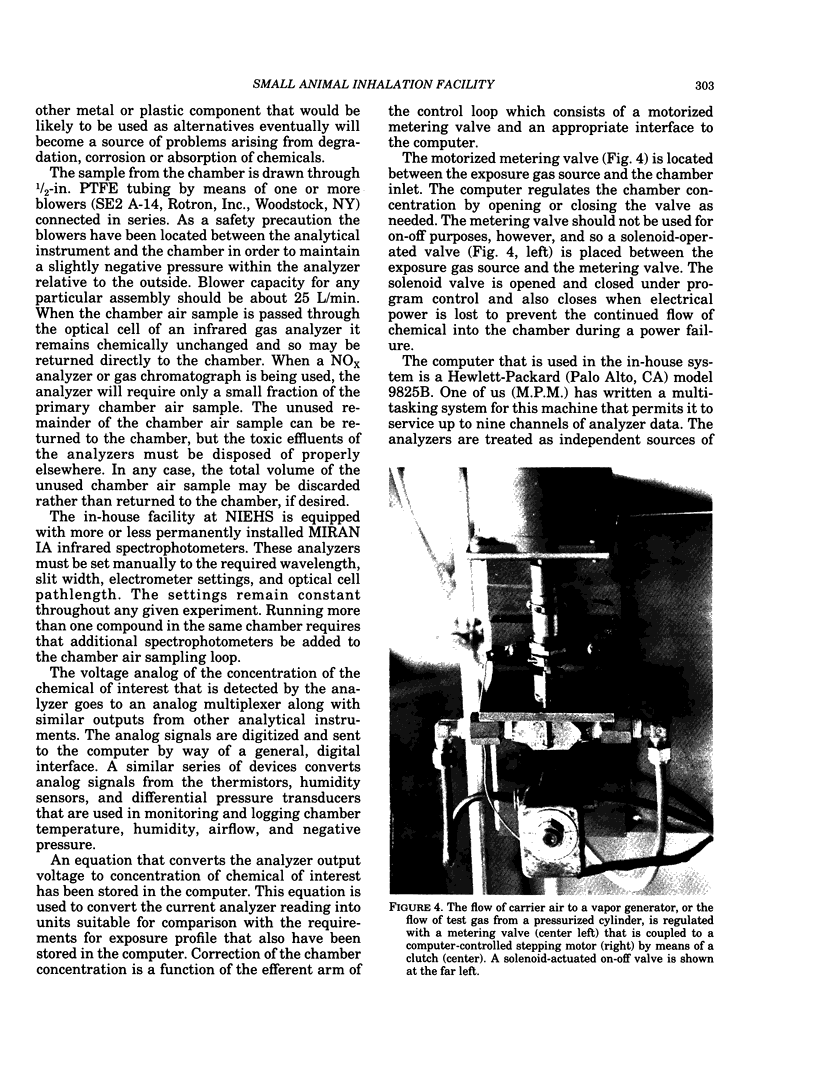
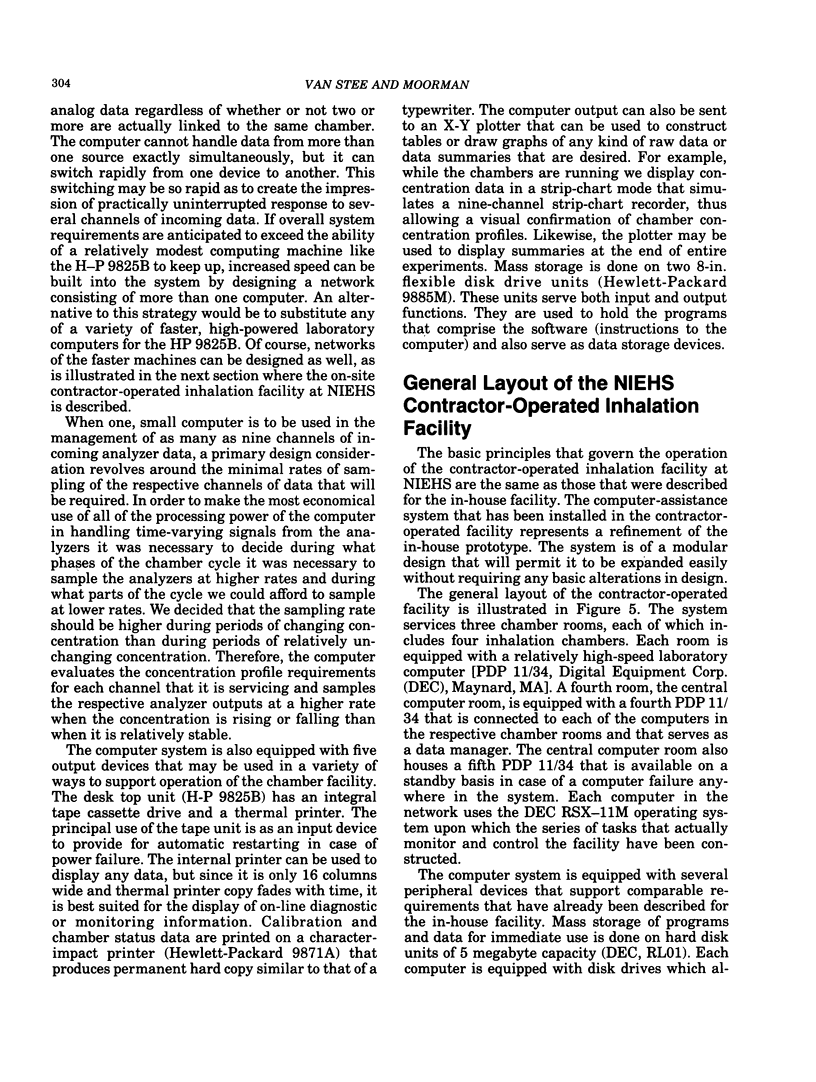
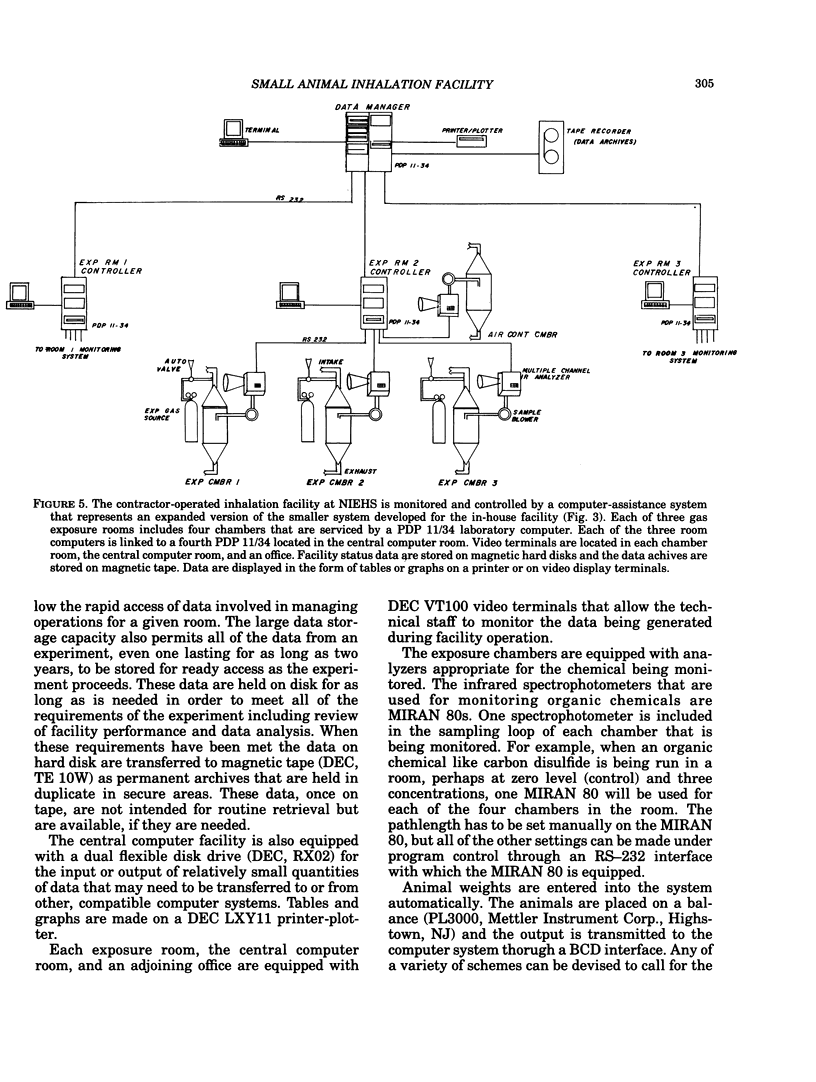
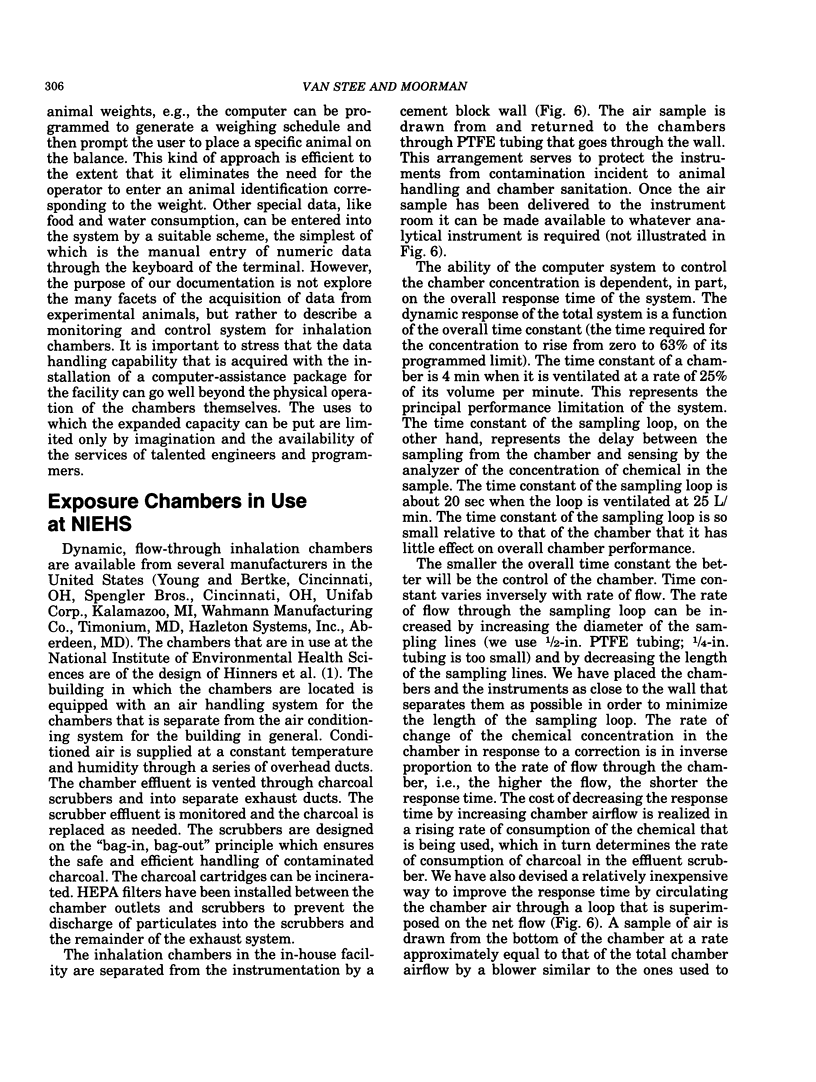
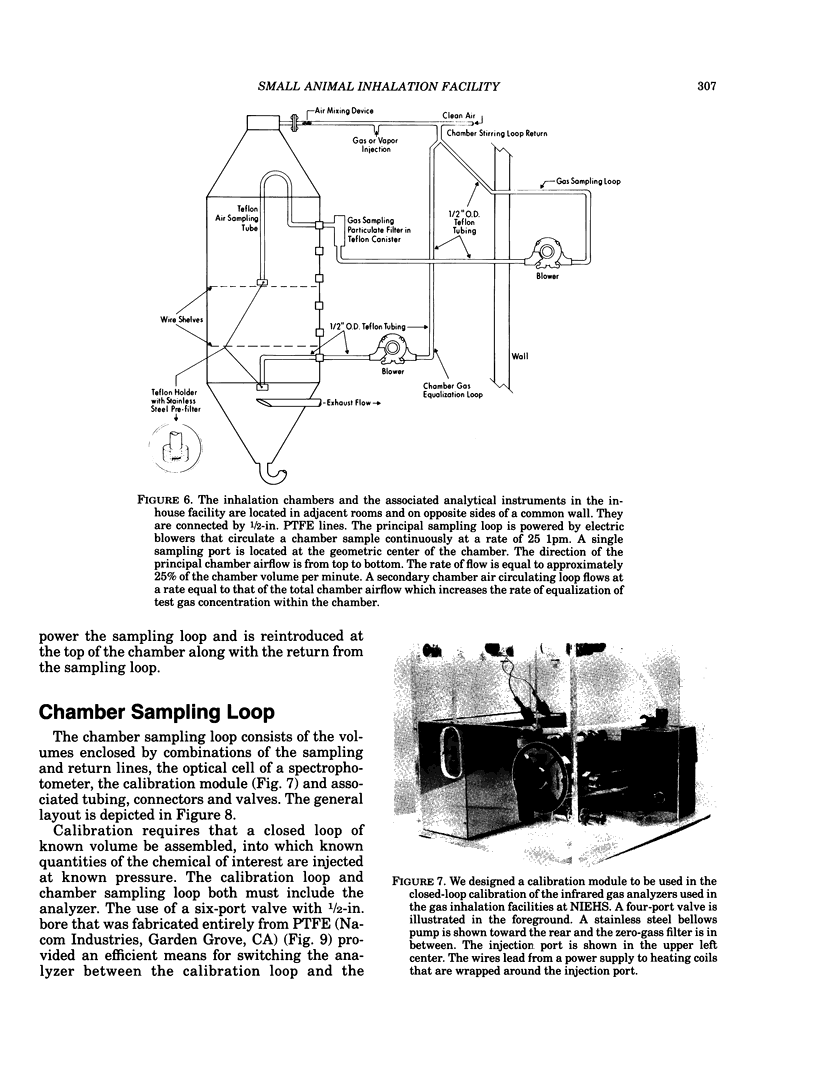
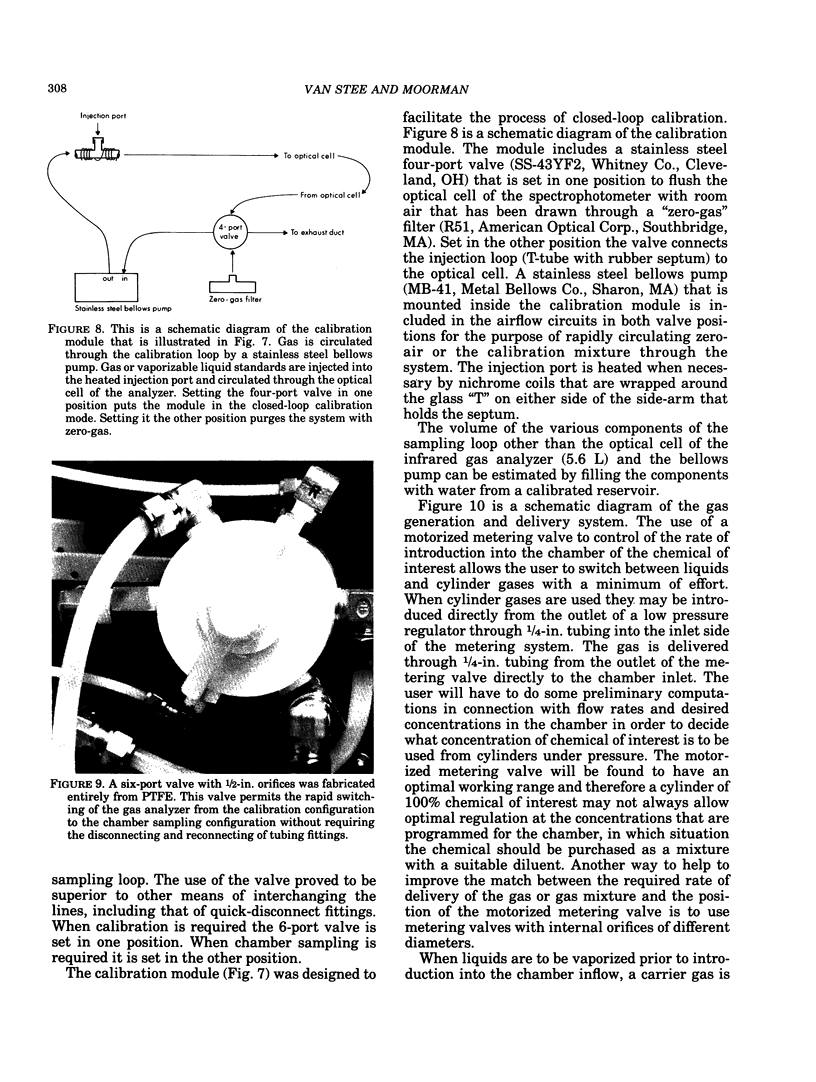
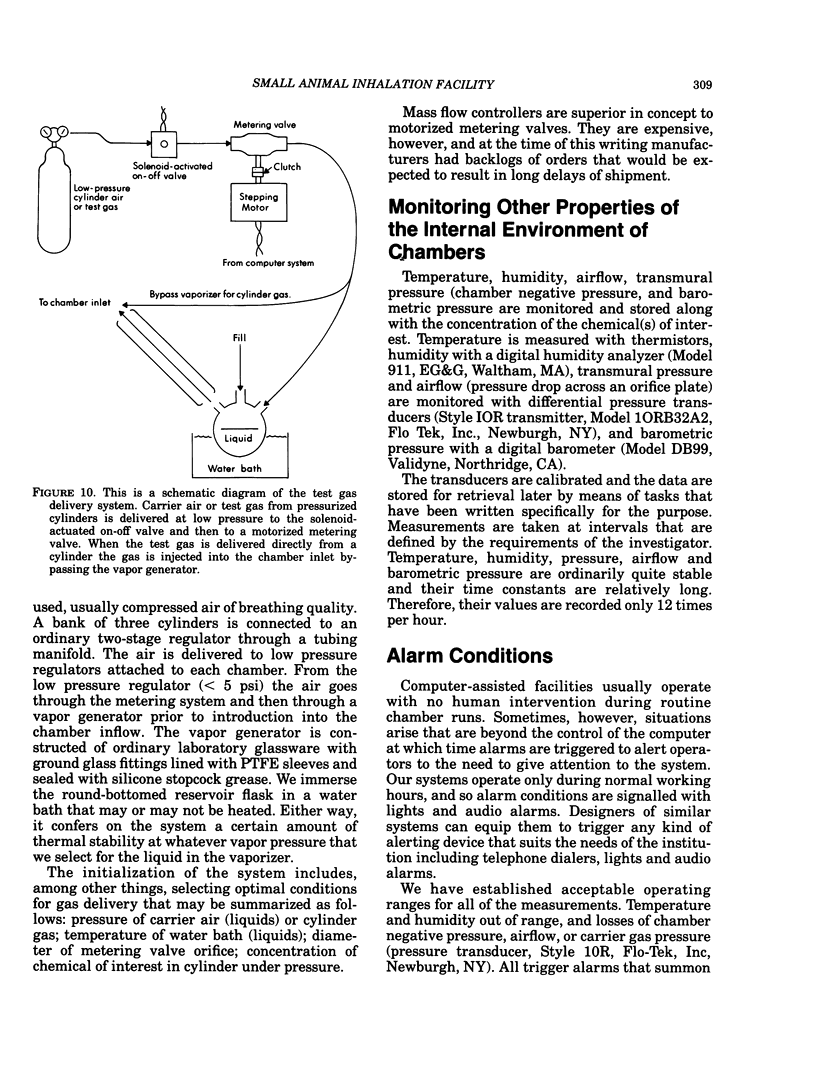
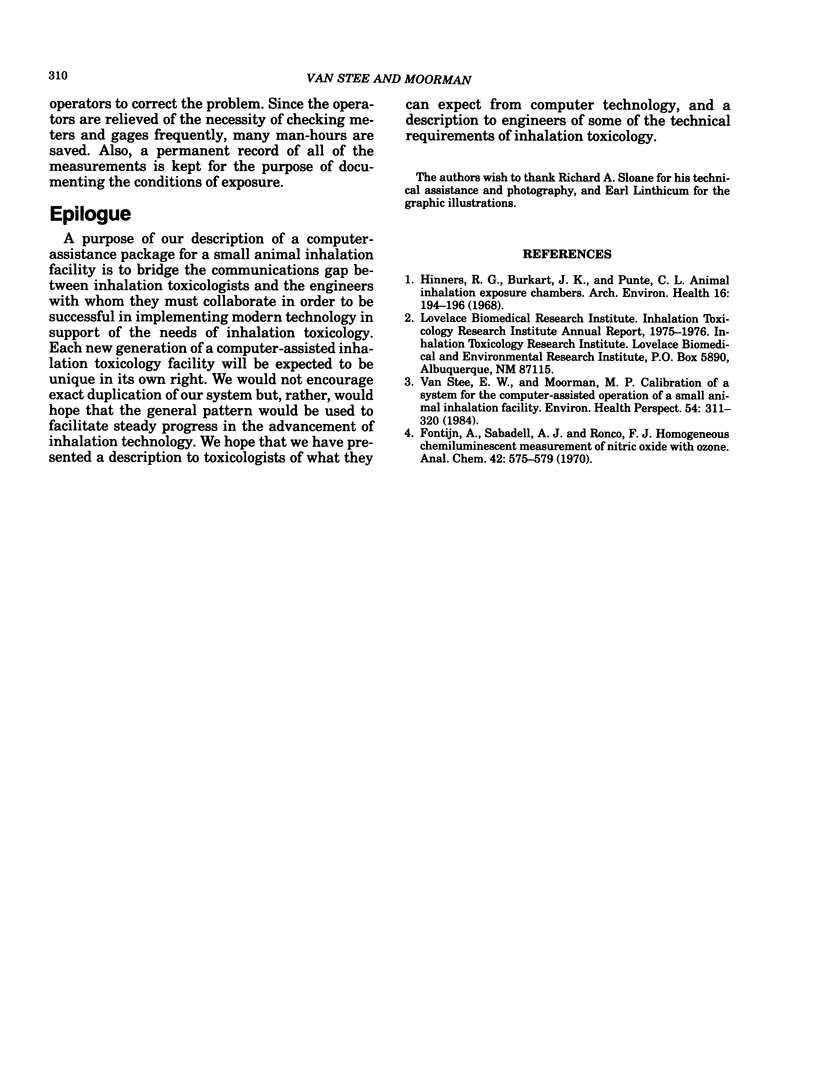
Images in this article
Selected References
These references are in PubMed. This may not be the complete list of references from this article.
- Hinners R. G., Burkart J. K., Punte C. L. Animal inhalation exposure chambers. Arch Environ Health. 1968 Feb;16(2):194–206. doi: 10.1080/00039896.1968.10665043. [DOI] [PubMed] [Google Scholar]
- Van Stee E. W., Moorman M. P. Calibration of a system for the computer-assisted operation of a small animal inhalation facility. Environ Health Perspect. 1984 Mar;54:311–318. doi: 10.1289/ehp.8454311. [DOI] [PMC free article] [PubMed] [Google Scholar]



